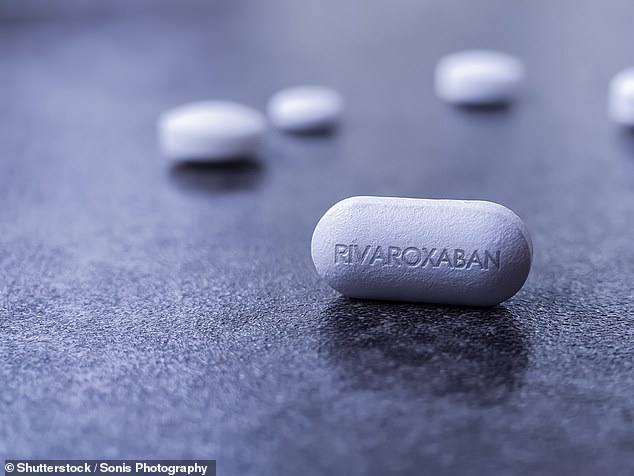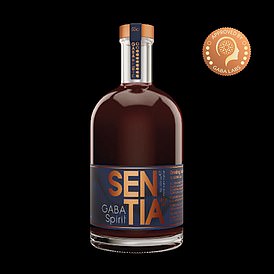Anti-stroke drug taken by millions found to be ‘unreliable’ and fatal side effects were ignored
>
Research behind a blockbuster anti-stroke drug could have included fake data while its serious and potentially fatal side effects were kept secret, official US documents have revealed.
In 2009, distinguished British medical journal The Lancet published a major study on the blood thinner rivaroxaban, which appeared to show it was safe and effective. But now the journal has warned of ‘inaccuracies’ in the trial data and said that it would be investigating the research further.
Rivaroxaban, often sold under the brand name Xarelto, is approved by health watchdogs NICE for the prevention of stroke and embolisms – blocked blood vessels, usually caused by blood clots. It got the green light from international health watchdogs in 2011, and now each year it is taken by thousands of Britons and millions worldwide.
If the claims against the early rivaroxaban trial – named Record4 – are true, patients may have been misled about the probability they’ll experience side effects, which include the risk of severe and even potentially fatal bleeding. That study assessed the drug’s role in preventing blood clots after surgery, but it has since been cited by other researchers thousands of times as proof of its safety.

Rivaroxaban, often sold under the brand name Xarelto, is approved by health watchdogs NICE for the prevention of stroke and embolisms (stock image)
‘If serious side effects are more common than has been officially reported, the risk is higher than patients have been led to believe,’ says Dr Peter Wilmshurst, a cardiologist based at the Royal Stoke University Hospital who is also a research fraud campaigner. ‘Without trustworthy data, patients and doctors don’t know exactly how safe this drug is.’
He added that following warnings about rivaroxaban in other medical reports over the past ten years, The Lancet has had ‘plenty of time’ to issue corrections or retract the paper.
In the same year The Lancet published the Record4 trial results, US drug approval body the Food And Drug Administration (FDA) rejected the study. It concluded: ‘The data used… were unreliable.’ Two years later, after three subsequent studies by a different research group, rivaroxaban was approved in the US and the UK for stroke prevention.
In 2015, an American medical magazine analysed 57 FDA reports of research misconduct – including the controversial rivaroxaban trial. It alleged ‘falsification, missing records and improper storage of drugs’. The Lancet issued its warning following pressure from rival publication The British Medical Journal which, in December, presented evidence from FDA reports that alleged there were ‘serious and numerous data deficiencies’ in results from eight of the 16 hospitals involved in the rivaroxaban trial.
According to The British Medical Journal, it also said stated that two of the 16 hospitals failed to report serious side effects and four of the patients taking rivaroxaban in the trial died, which the researchers failed to explain.
Dr Wilmshurst says: ‘It is shocking that a death can be allowed to go unexplained when a patient dies during a three-week trial.’
In response to the allegations, the lead author of the trial, Alexander Turpie, emeritus professor of medicine at McMaster University, Ontario, told The British Medical Journal that the FDA is ‘not the arbiter of what data is reliable, or not’. He added: ‘Plenty of controlled studies are submitted to journals and rejected as unreliable, then resubmitted elsewhere where they may ultimately be accepted and published. We think the Record4 data is in that category: unreliable for FDA but sound in its primary efficacy and safety conclusions.’
Record4 was partly funded by German firm Bayer – one of the pharmaceutical companies that developed the drug. In 2019, it was reported that the companies raked in almost £5.4 billion in sales from the drug in just one year.
The new allegations are the latest in a string of scandals that have rocked the field of drug research. In October 2021, this newspaper revealed that as many as one in five of the estimated two million medical studies published each year could contain invented or plagiarised results. And last summer it was revealed that a pivotal Alzheimer’s disease study may have been faked. It meant the development of effective treatments was potentially hindered and seriously ill patients were given false hope.
Experts argued the editors of the major medical journals were doing too little to stem the tide of ‘tainted data’, ultimately putting lives at risk, and that they should face stiff fines if found to have published studies without due diligence.
Rivaroxaban is one of a family of drugs called novel oral anticoagulants, or NOACs. It is commonly prescribed to heart disease patients who are at high risk of stroke, as well as those who are at risk of a clot following joint replacement.
Many patients find the drug easier to take than warfarin, which has been the most commonly prescribed anti-clotting drug for more than 50 years. But warfarin cannot be taken alongside other common medicines, and patients must have a check-up every six weeks to monitor for dangerous side effects, such as uncontrolled heavy bleeding.
With NOACs such as rivaroxaban, these risks were believed to be lower, meaning ongoing hospital check-ups were not needed.
Dr Wilmshurst says: ‘Cardiologists were sold this idea that these drugs are a safer option than warfarin, but that may not necessarily be the case.’
In the US, a series of lawsuits have been lodged against the pharmaceutical companies behind rivaroxaban by relatives of patients who it was claimed had died from lethal bleeds related to the drug. In 2019 they moved to settle by agreeing a £650 million payout, although they did not accept liability and stood by its safety.
Dr Wilmshurst says: ‘These medicines have advantages – I prescribe them often – but there isn’t sufficient evidence to show they are necessarily superior to alternatives. And it is difficult to make firm conclusions when we can’t trust the trials which were supposed to tell us if they’re safe and effective.’
In a statement, The Lancet Group said: ‘We take issues relating to scientific misconduct extremely seriously and follow best practice guidelines as set by the Committee on Publication Ethics. The Lancet published a correction to the original article in December 2022. When further details of the FDA report were brought to our attention, we contacted the authors’ institution requesting an investigation.’
Last night Bayer said: ‘The Lancet is investigating the reliability of the study, not the drug itself. The study in question refers to a very specific use of rivaroxaban in a particular group of patients – to prevent blood clots after an operation. It used a different dose for stroke prevention use of the drug.’

